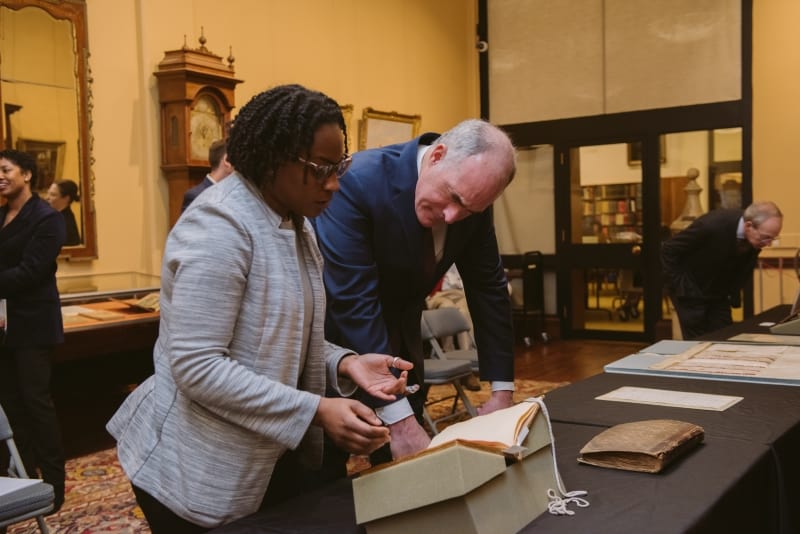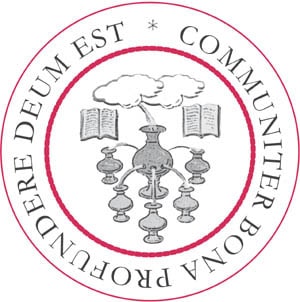A Visit from a Senator, and Advancing Civic Literacy
Michael Barsanti, Edwin Wolf 2nd Director

Senator Bob Casey visits The Library Company. Photo by Cathie Berrey-Green, BeauMonde Originals
Today (February 10, 2020) the Library Company is very honored to welcome Senator Bob Casey for a visit. We are looking forward to sharing collection items related to Frederick Douglass and our African American History Collection, as well as giving a general history of the library. We are particularly eager to welcome him at a moment when so many people in our community are concerned about the health of our government and its institutions, and when we at the Library Company are looking for ways that we can use our unique history and resources to restore faith in an active model of citizenship.
Every year the Library Company chooses a shared goal to focus our energies on. In the past, those goals have included increasing the number of shareholders and increasing the diversity of the organization. We have found that when everyone in the organization shares a goal, we come up with brilliant ways of reaching it, and we succeed. This year, we have chosen to focus on using our resources to build Civic Literacy.
What does that mean? From its founding, the Library Company has been committed to the idea of spreading knowledge to benefit the community – it’s in our motto, “Communiter Bona Profundere Deum Est” [“To pour forth benefits for the common good is divine”] and our seal, which shows a fountain pouring knowledge into surrounding cups.
Benjamin Franklin took great pride in how the Library Company, and the many subscription libraries that followed it, increased the knowledge of all kinds of Americans. This was not just because they improved people’s lives and businesses; it was because they helped to make the new democratic nation possible.
At the end of the first part of his Autobiography, written in England a few years before the revolution broke out, Franklin says about the Library Company and its followers that they “have improv’d the general Conversation of the Americans, made the common Tradesmen & Farmers as intelligent as most Gentlemen from other Countries, and perhaps have contributed in some degree to the Stand so generally made throughout the Colonies in Defense of their Privileges” [my emphasis]. Libraries promote learning, learning leads to awareness of rights, awareness of rights leads to people articulating and defending those rights.

When the Library Company served as the first Library of Congress to the Continental Congresses and to the Constitutional Convention, this relationship between libraries, learning, and rights became even more explicit. We were not just present for the drafting of the Constitution – we were a part of that work; our books provided the framers access to the history and philosophical traditions on which the Constitution is based. One lesson they took from their reading was that historically, democracies were seen as unstable forms of government, prone to usurpation by demagogues and tyrants. The tool that the framers reached for to address this weakness was education. Libraries were, and are, critical places for the education that makes democracies work.
Civic Literacy is another term for talking about this education. In this election year, we will be asking how we can use our many resources – especially our collections, our staff, our scholars, and our shareholders – to make more people aware of their rights and privileges as Americans. How can we best help people take a stand in defense of their privileges? How can we use our resources to encourage people to vote, to embrace the value of citizenship, to support the living Constitution and its promise of “a more perfect union?”
This will be an important year for the Library Company and for our country. I hope you will join us with your own ideas and energy as we move forward.


